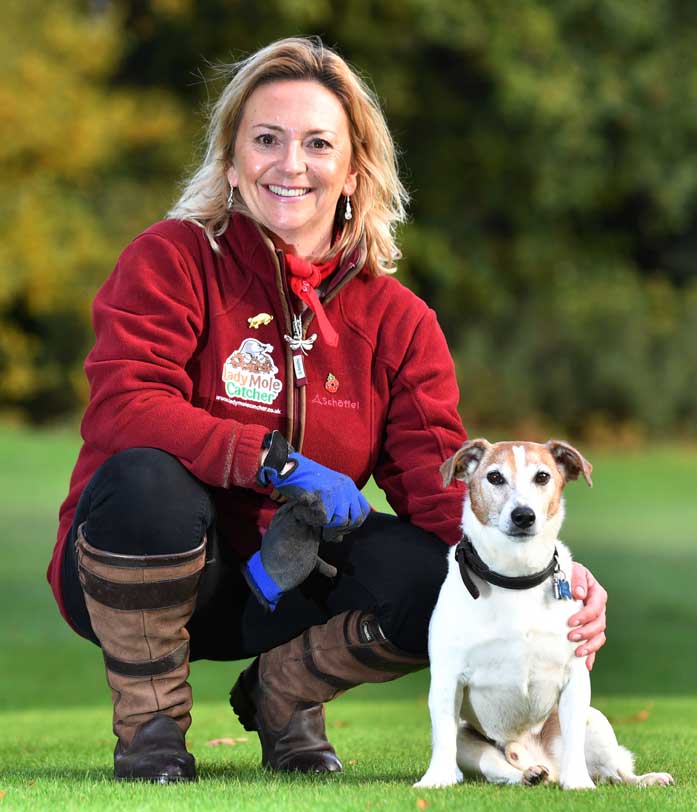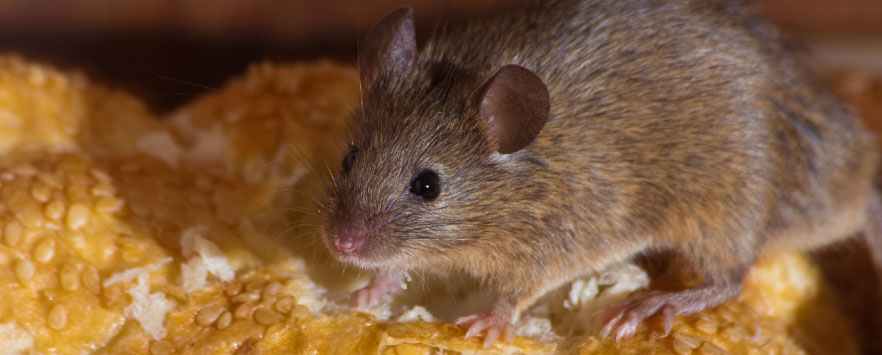Mice control
Lady Mole Catcher is also qualified to deal with mice, with or without poison.
Louise Chapman has a certified training qualification from The BASIS Registration Board in Principles of Rodent Control and is a recognised member of the BASIS Prompt Register (a register of managers and technicians providing professional pest control services and advice).
About Mice
In the UK there are many species of mice but only a few are considered as pests and are therefore subject to control. The main species you may encounter in your home, garden or business are:
Field mice (Apodemus sylvaticus) rarely go into houses but will find sheds and barns during the winter. They have a passion for fruit and vegetables so are a particular threat to farms and small holdings.
House mice (Mus domesticus) are active all year round and often be found making themselves comfortable within your home or business premises.
Yellow necked field mice (Apodemus flavicollis) are mostly found in rural areas, however, they’re also well known to cause a fire risk by chewing through electrical wiring.
How do you know if you have a mouse problem?
Mice are mainly active at night so they can search for food and hide themselves during the day. Some common signs of mice to look out for include:
- Small, dark droppings on or inside cupboards and also along skirting boards
- Grease marks along walls, floors and skirtings which mark out the mouse’s regular travel routes
- Urine pillars, which are a combination of dirt, urine and body grease which can be up to 4cm high and 1cm wide
- You may hear scratching noises at night when mice are at their most active. They tend to be found in walls, under floorboards, in basements or lofts
- Nests are built using easy to shred materials such as cardboard and fabrics. They can be found in lofts, walls, under floorboards, in airing cupboards and behind appliances
- Footprints may be seen in unused areas where floors and walls are dusty
- Spotting a live or dead mouse during the day can be a sign of a heavy infestation
- Strong ammonia smells may be present because mice urinate frequently
Why control mice? There are a few issues to consider if you discover a mouse infestation:
- Contamination of food – pathogens found in mouse droppings and urine can lead to the spread of dangerous diseases such as Leptospirosis, commonly known as Weil’s Disease and Salmonellosis.
- Property damage – mice gnaw at a range of items found in homes and business, some of which can cause safety issues such as increased risk of fire & flood from chewing through wires and pipes
- Spread of diseases – mice carry pathogens in their urine and faeces which can transmit Hantavirus, Salmonellosis, Listeria and more
- Business reputation – if customers notice that you have a mouse infestation, they may decide to stop working with you

Louise Chapman BA (Hons) PGCE
Norfolk’s very own Lady Mole Catcher®
Who I work with
- Householders in their gardens
- Farmers and Land Agents
- Outdoor Leisure Facilities
- Businesses
- Restaurants and Pubs
- Schools/Colleges
- Local Authorities
If mice are causing problems in your property or your garden, get in touch with Louise to arrange for a site survey or consultation. Call 01603 25 99 45 or 07876 14 11 53 or email louise@ladymolecatcher.co.uk

